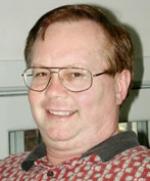On the Ideal Future of the Human Resources Field
Speaker A Dave Ulrich. I was fortunate to meet him when I was at English Whirlpool. He was used extensively by Whirlpool HR, corporate HR, to talk about the role of HR. And very bright individual. A p...
Transcript of the presentation video
NOTE: This transcript of the video was created by AI to enable Google's crawlers to search the video content. It may be expected to be only 96% accurate.
Speaker A Dave Ulrich. I was fortunate to meet him when I was at English Whirlpool. He was used extensively by Whirlpool HR, corporate HR, to talk about the role of HR. And very bright individual. A pleasure to listen to his ideas. I've also read the book HR Champions. A lot of great ideas that he comes with. I still feel that HR is not progressing as it should. My feeling is that they're still too service oriented. There's very little strategy that they do, and I'm talking Canadian VPs of HR now. It's to the point where I think we should restructure the HR function and have a chief strategist that would look at blending or integrating the people systems, the technology system, process system, talent pool systems, and then have another kind of role. So that would be the role in the Flas. Under records or organization, there's people that work in the Flas and then the service VP of HR could be moved aside and they could spend all their time working on servicing their people and also outsourcing some of the HR. And a lot of companies are doing that. Pensions, benefits, rewards, and so forth. So that's my feeling about HR. Working in a Flask involves working for the CEO of a company. Usually you don't have subordinates. You may be asked to do the strategic plan for people over a ten year period, and you're helping the CEO come up with his 20 year plan for the people. It could be that you're looking at the quality program that will move the organization forward. Actually, VPs of HR should spend some time in the Flask, but my experience is they are so busy so overworked that 95% of their time is spent servicing the managers and the employees. So in a way, the VPs of HR are failing because there's no long term five to ten year people programs in these companies. If Alrich would use the requisite organization concept that Elliot Jakes invented, I think his book would make more sense at this point in time. It does not talk about structure or levels, cognitive ability to work in the levels. And Oliver's book is probably aimed at level fours and fives in HR. But if they don't understand the concept of work design, and it's not taught in too many universities, I think it would make it a little bit difficult to put in these programs. And I guess it's something that's missing out there. We've tried to teach as much as possible the requisites organization concept in the Toronto area. I know Ken Shepard's done a lot of work on getting this out to thousands and thousands of people. But most universities do not teach organization design the way it should be. And if they do teach organization design, all they talk about is linkages and accountabilities between functions and so forth. My advice to young HR people would be to learn as much as you can, work as many hours as you can get as much experience doing different things. HR is very broad, as we all know, and it takes a long time to learn all the skills. So if you can rotate in other roles and I think from my standpoint, mistakes that are made a lot of times is not to go into operations. For example, I had opportunities, I ran other staff functions, but I had opportunities to become a Vpgm, and probably should have taken advantage of those. So I think to make it up there as a level six VP of HR, I think it's very important to maybe spend four to five years in a Vpgm role. And you may want to stay there forever, but at least go in there, learn how to run a business. And when you become a VP of HR at level five or six, you'll have more respect from your colleagues.
Major organizations and consulting firms that provide Requisite Organization-based services





